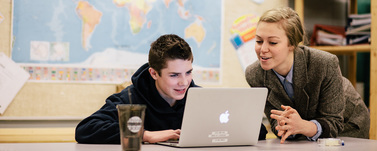
Kids, however, see this problem clearly. Today at recess, a small group of elementary students sat outside of my office selling raffle tickets on a stuffed tiger that belonged to one of them. Their goal was to raise enough money to adopt one endangered polar bear. Baby steps, but if we all took them then we would be a lot closer to turning things around for the future of our planet.
Although we all know that the price of inaction is incredibly high, in practice it seems to be becoming easier and easier to avoid taking personal responsibility by off-loading the blame and responsibility somewhere else. These days I regularly hear on the radio statements like, "why should I agree to an increase in the provincial sales tax to improve transit in the lower mainland? That's the government's job not mine!" Or, listen to some of my Albertan friends complain that the rest of Canada must "hate" Alberta because they refuse to let pipelines be built to exploit the wealth of the oil sands. As the video which my students showed to their peers this morning so graphically illustrated, simply being a denier or even a vocal supporter of the reality of climate change won't stop the inevitable from happening. Only direct action can do that.
Perhaps that is why public displays of collective environmental awareness like Earth Hour and Earth Day seem to be losing some momentum. Here in British Columbia, where we pride ourselves on our commitment to environmental issues, participation in Earth Hour has been steadily declining. B.C. Hydro noted that overall, British Columbians saved about 65 megawatt hours of electricity and reduced the provincial electricity load by one per cent during Earth Hour this year, the equivalent of turning off about 1.4 million lights. However, 136 megawatts were reduced last year across the province during the event. In fact, participation in Earth Hour has been steadily declining in B.C. since 2008, when the province saw an overall two per cent in energy savings compared to just one per cent in 2014. Even my children were incensed as we doused our lights, put away electronics and played Carcassone by candlelight. They looked across Burrard Inlet from the windows of our mountainside house on the North Shore and were quite vocal about the fact that downtown Vancouver was ablaze in light.
"Don't they know that it is Earth Hour?", they asked. The unspoken answer was, "they do, but they just don't care." In too many minds, it is becoming someone else's problem to solve.



 RSS Feed
RSS Feed
